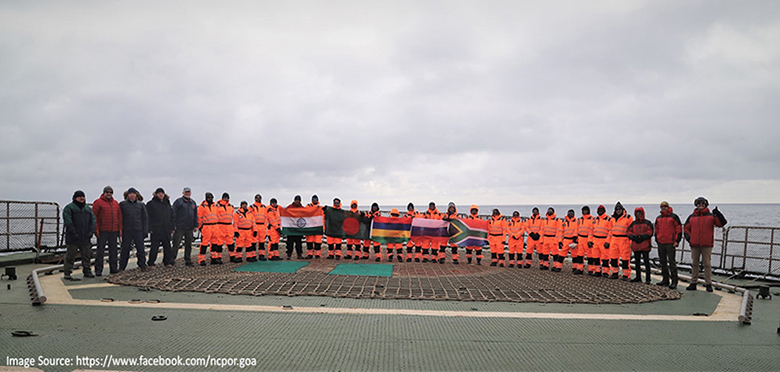Participation of scientists from the Mauritius Oceanography Institute in the 43rd Indian Scientific Expedition to the Antarctica
Antarctica “the white continent” is the fifth largest continent in the world with its unique wildlife, extreme coldness, dryness, windiness and unexplored territories. The aim of the 43rd Indian Scientific Expedition to Antarctica (43-ISEA) is to embark on a new journey of scientific research with focus on “Climate Change and its signatures in Antarctica”.
Fostering maritime collaboration, which stems from the maiden Colombo Security Conclave (CSC) Oceanographers and Hydrographers conference held in Goa and Hyderabad in November 2022, laid the foundation for scientific partnerships among the CSC nations, facilitating joint initiatives for oceanographic and hydrographic studies. Ensuing the approval of the Prime Minister’s Office for the nomination of two scientists from Mauritius, Mrs. Prerna Roy and Mrs. Anishta Audit-Manna, Associate Research Scientists from the Chemical Oceanography Unit at the Mauritius Oceanography Institute (MOI), embarked on the 43rd Indian Scientific Expedition to the Antarctica led by the National Centre for Polar and Ocean Research (NCPOR), scheduled from December 2023 to March 2024 from Cape Town on board the expedition vessel M.V. Vasiliy Golovnin.

Following a call for proposal under the NCPOR thematic area “Atmospheric observations, including climate reference stations”, a research proposal was submitted by MOI, entitled “From tropics to Polar Regions: A comparative study of carbonate chemistry in Mauritius and Antarctica”.
This research project aims at investigating and comparing the carbonate chemistry of two regions having different climatic environment. Collected water and ice samples will be analysed for pH and total alkalinity. Physicochemical and nutrients data will also be collected for interpreting the carbonate system dynamics for comparison with our region. The outcomes of the study could be used to raise awareness on the global implications of climate change.
The study would eventually provide valuable insights into the current state and future projections of ocean acidification in Antarctica and its impacts on marine organisms and ecosystems. Comparing the data between a Small Island Developing State (SIDS) and a polar region will eventually help in understanding the possible implication for the marine ecosystem in SIDS.
This research exploration is in line with the strategic approaches of the Institute which is to conduct and provide support for the multidisciplinary surveys in the maritime zones of the Republic of Mauritius. MOI has successfully established an ocean acidification observatory on the offshore of Albion. Thus, the training acquired in carbonate chemistry during this expedition, through the NCPOR network, will help the scientists at MOI to gain some understanding of acidification in our waters.





